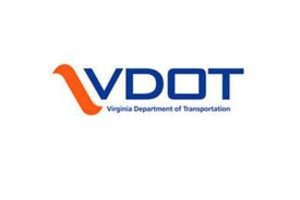
Governor Ralph Northam has issued a proclamation designating June 17-23, 2019, as Virginia Pollinator Week, and VDOT is celebrating by highlighting the importance of pollinators and threats to their habitats and food supplies. Pollinators — including honey bees, native bees, butterflies, birds, bats, and even flies and beetles — are vital to keeping fruits, nuts, and vegetables in our diets by moving pollen from one flower or plant to another for fertilization.
Over the past few decades, there has been a significant decrease in pollinators. Through its Pollinator Habitat Program, VDOT creates naturalized areas with native plantings along state-maintained roadways and properties to provide habitats for threatened and dwindling pollinator species.
“VDOT’s environmental stewardship initiatives support a healthy ecosystem,”Virginia Secretary of Transportation Shannon Valentine said. “We are committed to supporting our pollinators, making a positive impact today and for future generations.”
While wildflower plantings have been around for decades, VDOT’s Pollinator Habitat Program started in 2014, and today, pollinator plantings have been added at 16 VDOT properties around the Commonwealth. VDOT team members at all levels of the organization are committed to expanding the program, focusing on naturalized gardens and meadows at rest areas, park-and-rides, and additional VDOT facilities.
“At VDOT, we are committed to protecting the environment in the work we do each day. Our Pollinator Habitat Program gives us the opportunity to take our commitment even further by establishing, growing, and restoring crucial habitats for pollinators,” said VDOT Commissioner Stephen C. Brich.
As a result of its growth, the Pollinator Habitat Program drives further, impactful benefits in support of VDOT’s environmental stewardship goals. Supportive annual program practices reduce erosion and stormwater runoff while providing sediment control, use fewer pesticides, and improve aesthetics. More economic savings accrue by reducing mowing along some roadway medians — known as conservation mowing — and employing other vegetation management strategies, such as invasive species control and targeted herbicide applications.
VDOT, in partnership with the Department of Motor Vehicles, invites the public to purchase special license plates in support of the Pollinator Habitat Program. Wildflower and Protect Pollinators plate options are available.










